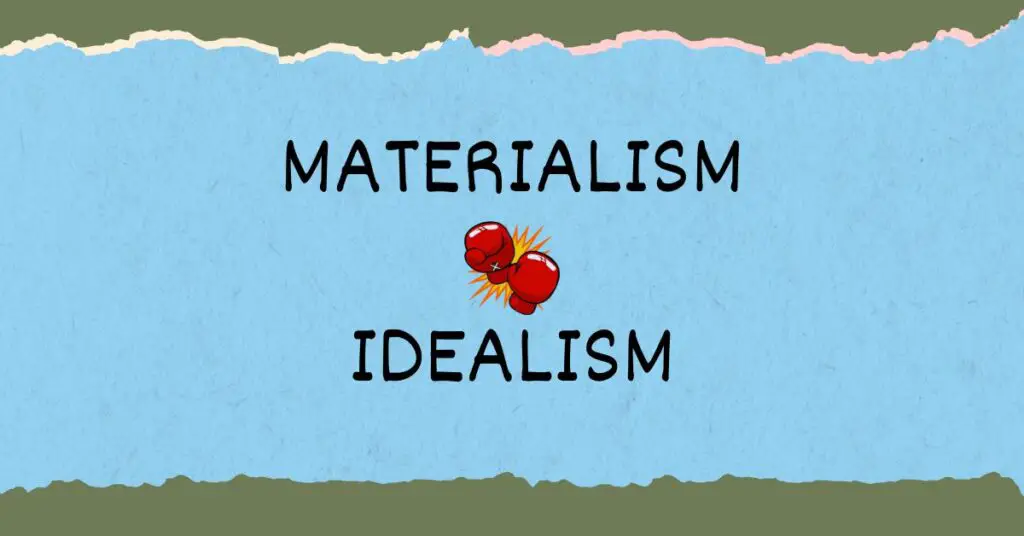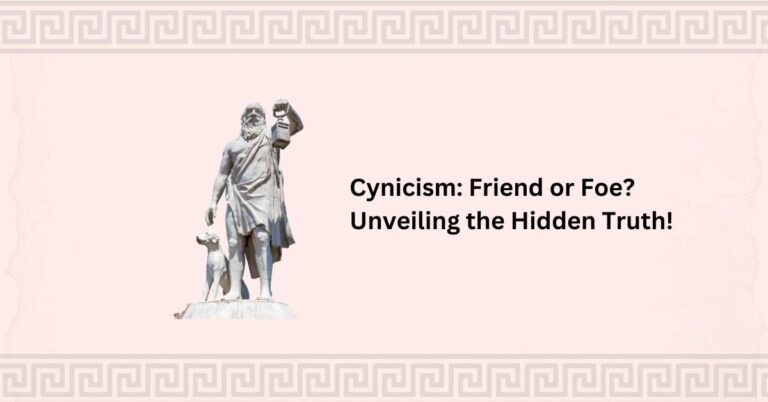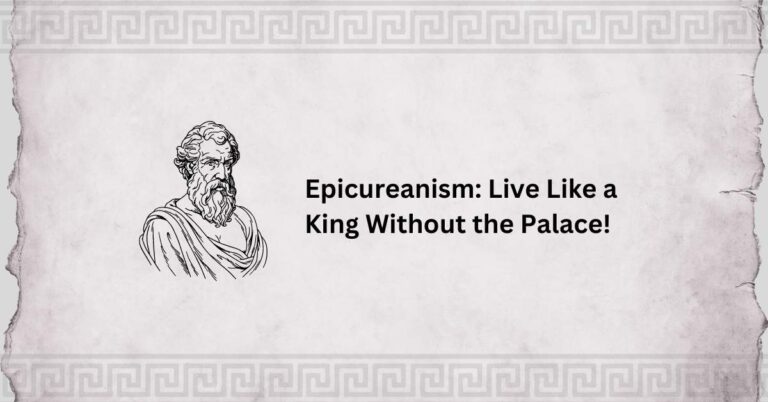Materialism vs. Idealism: Is the World What You Think?
Welcome! Today, we’re diving into a thought-provoking topic: materialism versus idealism. What are they, exactly?
Materialism is the belief that physical matter is the fundamental substance in nature, and all phenomena, including mental aspects and consciousness, are results of material interactions. On the flip side, idealism posits that reality, or reality as we can know it, is fundamentally mental, spiritually constructed, or otherwise immaterial.
Why bother exploring these perspectives? Well, understanding these two major schools of thought enriches our grasp of philosophical debates that shape our worldview. Whether we lean more toward the tangibles of science or the intangibles of consciousness, these ideas influence everything from our ethics to our politics.
So, let’s gear up for a journey into the core of philosophical differences, where every insight adds value to our understanding of the world. Ready to think deeply? Let’s go!
The Origins of Materialism and Idealism
Historical Development of Materialism:
Let’s kick things off with materialism. It all started with ancient thinkers like Democritus, who famously believed that everything is made up of tiny, indestructible units called atoms. Fast forward to the 19th century, and you meet Karl Marx, whose version of materialism—historical materialism—suggests that all societal structures stem from economic activity. Simply put, for materialists, everything that happens has a physical basis.
Historical Development of Idealism:
Now, onto idealism. This philosophy paints a different picture of reality. Plato, one of its earliest champions, introduced the idea of a world of forms or ideas that transcend the physical world. Fast forward to the 18th century, and we meet George Berkeley and Immanuel Kant, who argued that our perception shapes reality—what exists depends on our minds. Idealism tells us that there’s more to the world than just atoms and empty space; our minds play a crucial role.
Understanding Both Sides:
Why does this matter? These contrasting views on the nature of reality have influenced countless aspects of human knowledge and society. Whether it’s the cold, hard facts of physics or the subjective experiences of the mind, grasping these concepts from materialism and idealism helps us navigate complex philosophical landscapes.
So, as we explore these rich histories and groundbreaking ideas, remember: the debates between materialism and idealism aren’t just academic—they’re about understanding the very fabric of existence. Isn’t that something to ponder over your next cup of coffee?
Core Principles and Theories
Key Principles of Materialism:
First up, materialism champions a straightforward idea: the physical universe is all there is. Everything from your morning coffee to your thoughts about that coffee can be traced back to physical processes. But it gets deeper—materialists often embrace determinism. This means every event, including human actions, is the result of preceding events governed by the laws of nature. Then, there’s reductionism, the practice of analyzing and describing a complex phenomenon in terms of its simple or fundamental parts. Think of it like understanding a clock by examining each gear and spring.
Key Principles of Idealism:
In the world of idealism, things are not so cut and dry. Idealists argue that reality is shaped by our mental activities or even spiritually constructed. This doesn’t just mean our thoughts influence our reality—it means they create it. Perception and consciousness aren’t just windows to the world; they are the architects of it. For idealists, diving into the mind’s role in crafting our environment is not just insightful—it’s essential.
Weighing Both Sides:
Understanding these principles isn’t just an intellectual exercise—it’s a way to broaden our perspectives. Materialism grounds us with its emphasis on observable and measurable phenomena, while idealism elevates our appreciation for the complexities of human consciousness and perception. What’s more real: the physical brain or the mind it generates? As we dig into these philosophies, let’s keep our minds open to the profound implications each has on our understanding of the universe.
So, as we unpack these ideas, let’s enjoy the dance between the tangible and intangible aspects of our existence. Whether you lean towards the solid facts of materialism or the intricate ideas of idealism, there’s a whole world of thought waiting to be explored. Who said philosophy couldn’t be as engaging as the latest drama series?
Materialism and Idealism in Modern Context
Application of Materialism in Science and Technology:
Materialism isn’t just an old philosophical relic; it’s alive and well in modern science and technology. Take biology, for example, where genetic determinism suggests that our genes control not only our physical traits but also certain behaviors, predisposing us to various conditions. Then there’s physics, where the materialist approach has us looking at the universe as a big, tangible machine where everything from stars to smartphones operates according to physical laws. This perspective is fundamental in developing technologies that transform our lives.
Application of Idealism in Ethics and Metaphysics:
On the flip side, idealism offers a refreshing lens, especially in ethics and metaphysics. It prompts us to consider: What if reality is shaped by our beliefs and intentions? This perspective can radically alter how we approach ethical questions. For instance, if our perceptions shape reality, how responsible are we for crafting a just world? In education, idealism inspires pedagogies that prioritize the development of the whole person, emphasizing critical thinking and self-awareness over rote memorization.
Navigating Both Worlds:
So, how do these ideas fit into our daily lives? Materialism helps us make sense of the world through data and hard facts, guiding technological advances that improve our physical existence. Meanwhile, idealism pushes us to question the very foundation of what we know and teach, encouraging a deeper reflection on our ethical and metaphysical assumptions. Together, these philosophies offer a robust framework for understanding not just the world around us but also the potential of our place within it.
As we explore these applications, keep in mind that every scientific breakthrough and ethical dilemma reflects these deep-seated philosophical debates. Whether you’re a tech enthusiast fascinated by the latest gadget or a deep thinker pondering the big questions of life, these perspectives are more relevant than ever. Let’s keep the conversation going—what new insights will the next breakthrough bring?
Comparative Analysis
Comparing Materialism and Idealism:
How do materialism and idealism interpret change and development in the universe? Materialism views change as a series of physical and deterministic processes, where everything follows natural laws like dominoes in a line. Idealism, however, suggests that change and development are influenced by human perception, ideas, and consciousness—essentially, our beliefs can shape the course of history.
The Nature of Human Existence and Free Will:
When it comes to human existence and free will, the contrast sharpens. Materialists argue that free will is an illusion, as our choices and actions are the result of chemical and physical processes. Idealists, on the other hand, champion the idea that free will is real and significant, rooted in our ability to form ideas and make choices based on those ideas rather than mere physical stimuli.
Pros and Cons of Each Worldview:
Materialism:
- Pros: Offers a clear, objective method to study the world, leading to advancements in science and technology.
- Cons: Can be seen as reductive, potentially overlooking the roles of consciousness and human experience.
Idealism:
- Pros: Emphasizes the importance of mental and ethical dimensions in shaping reality, enriching our understanding of human potential.
- Cons: Can be criticized for being too abstract and not sufficiently grounded in observable phenomena.
Limitations and Criticisms:
Materialism sometimes faces criticism for ignoring the subjective aspects of human experience, which are hard to explain through physical processes alone. Idealism, while uplifting, can be seen as impractical in its dismissal of the physical realities that we cannot simply wish away.
As we weigh these viewpoints, it becomes clear that both philosophies offer valuable insights but also come with their limitations. Whether you find yourself nodding along with the materialists or pondering with the idealists, understanding both sides enhances your ability to navigate and appreciate the complex tapestry of existence.
So, let’s keep this engaging dialogue open: which perspective resonates more with you, and why? Perhaps the answer isn’t just in the details but also in how we choose to view them.
Influence on Other Disciplines
Impact on Politics and Society:
Materialism has made its mark on politics, particularly through Marxist theory. Marxism applies materialist philosophy to politics, arguing that economic factors primarily drive societal changes and class struggles. This approach has not only shaped political policies and movements worldwide but also provided a framework for analyzing historical developments through the lens of material conditions.
Influence on Art and Literature:
Idealism has woven its threads deeply into the fabric of art and literature. Romanticism, for example, is steeped in idealist themes, celebrating emotion, individualism, and nature as a counter to the stark rationality of the Enlightenment. This movement encouraged artists and writers to explore and express the transcendent and sublime aspects of life that materialism often leaves untouched.
Influence on Religion and Spiritual Beliefs:
Idealism also plays a significant role in shaping religious and spiritual beliefs, emphasizing the importance of the spiritual and mental over the material. This philosophy supports the view that there is more to existence than what we can touch and see, encouraging a belief in a higher reality that shapes our physical world. From this perspective, our spiritual practices and beliefs are not just reactions to our environment but are integral to shaping it.
Weighing the Influence:
Both materialism and idealism profoundly impact various spheres of human activity. Materialism’s influence on political and scientific thought underscores its importance in practical and policy-making contexts, providing a solid ground for developing technologies and strategies that address material needs. On the other hand, idealism enriches our cultural and spiritual life, fostering a broader understanding of human experience and potential.
Whether we’re voting at the polls, marveling at a painting, or meditating in silence, these philosophies guide our actions and shape our worldviews. As we close this exploration, let’s appreciate how these deep-seated ideas continue to inspire and challenge us across all areas of life. Isn’t it fascinating how ancient thoughts still move modern worlds? Let’s keep this conversation going—how do you see these philosophies influencing your world?
Are you interested in learning about other philosophy types, such as Hedonism, Cynicism, or Epicureanism? We have already covered those topics, so feel free to read them. Happy learning!
Conclusion
As we wrap up our exploration of materialism and idealism, we’ve delved into their origins, key principles, modern applications, comparative strengths and weaknesses, and their wide-ranging influence on disciplines like politics, art, and religion. We’ve seen how materialism emphasizes the tangible, guiding scientific and technological progress with its focus on physical reality. Idealism, in contrast, champions the power of the mind and spirit, influencing ethical thinking, artistic expression, and spiritual practices.
Now, I invite you to pause and reflect on your own beliefs. Which aspects of these philosophies resonate with you? Are you more inclined to see the world through the lens of material interactions or through the constructs of the mind? Understanding your stance can enrich your perspective not just on philosophy but on life itself.
Looking ahead, the debate between materialism and idealism is likely to evolve with advancements in science, especially in fields like neuroscience and artificial intelligence, which challenge our understanding of consciousness and reality. Likewise, societal shifts toward greater awareness of mental health and wellness may prompt a renewed interest in idealistic perspectives.
Let’s keep our minds open and our dialogues ongoing. What new insights will the future bring in the timeless dance between the material and the ideal? Share your thoughts, and let’s continue this fascinating conversation together. Isn’t it incredible how ancient philosophical debates still help us navigate the complexities of modern life?



